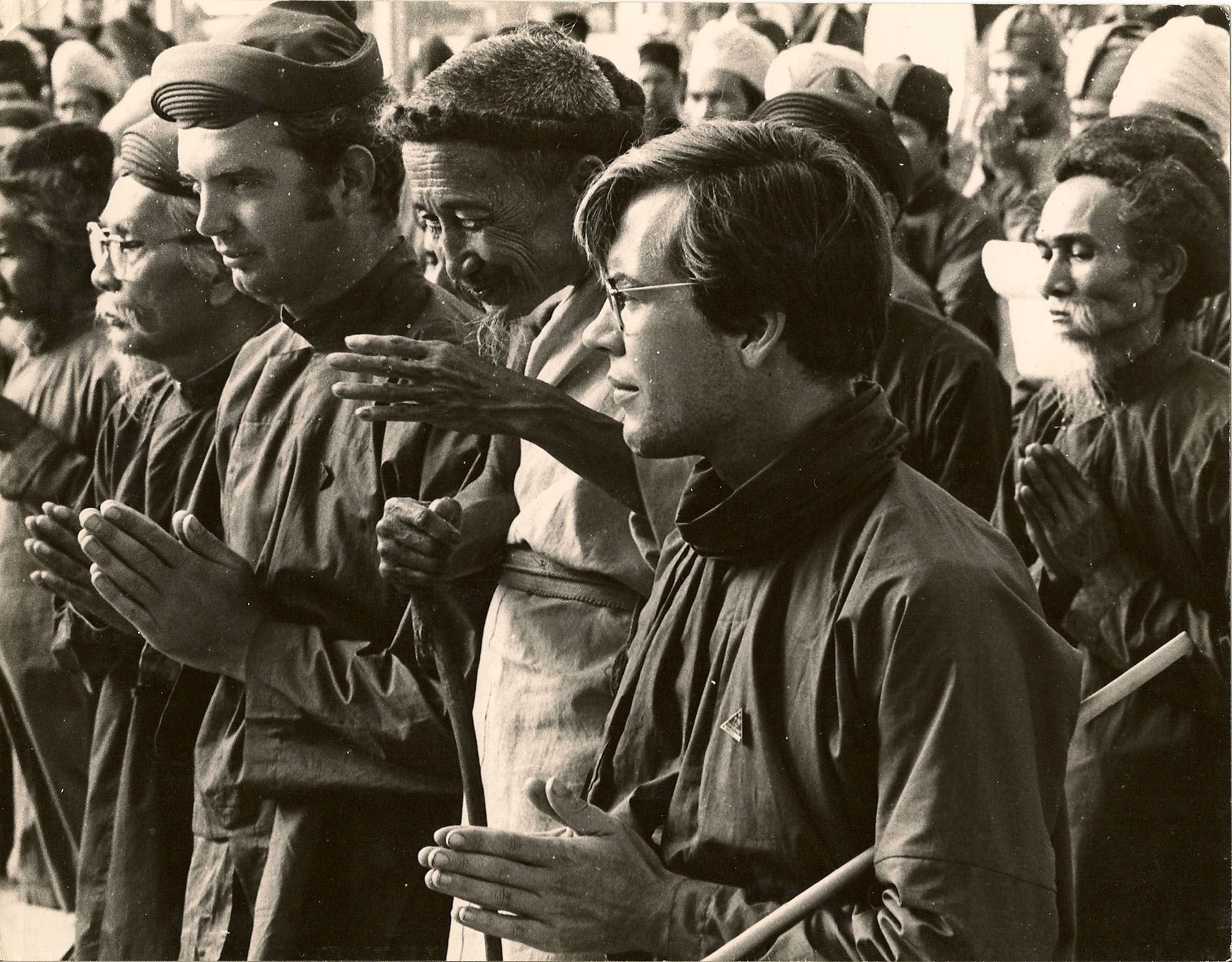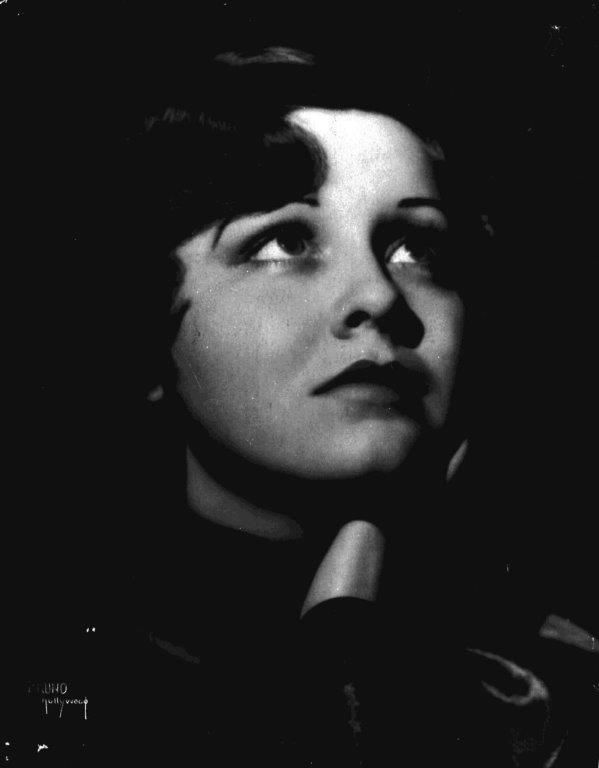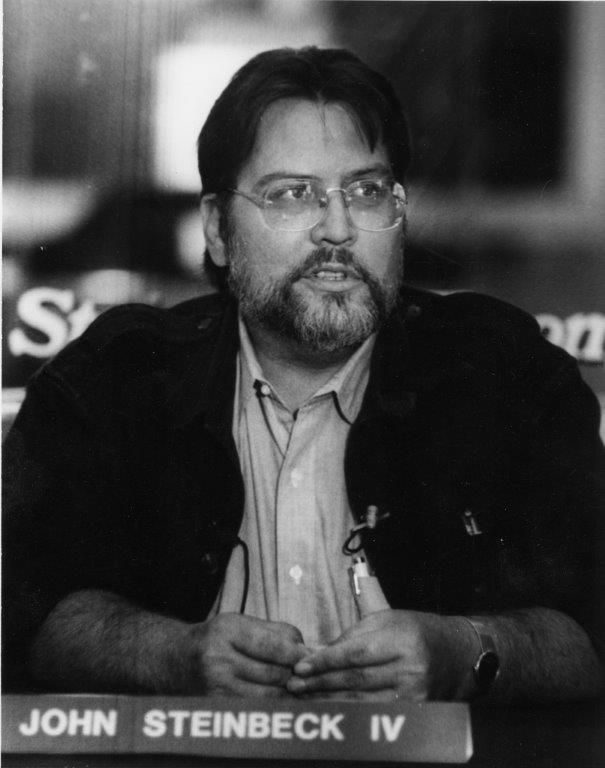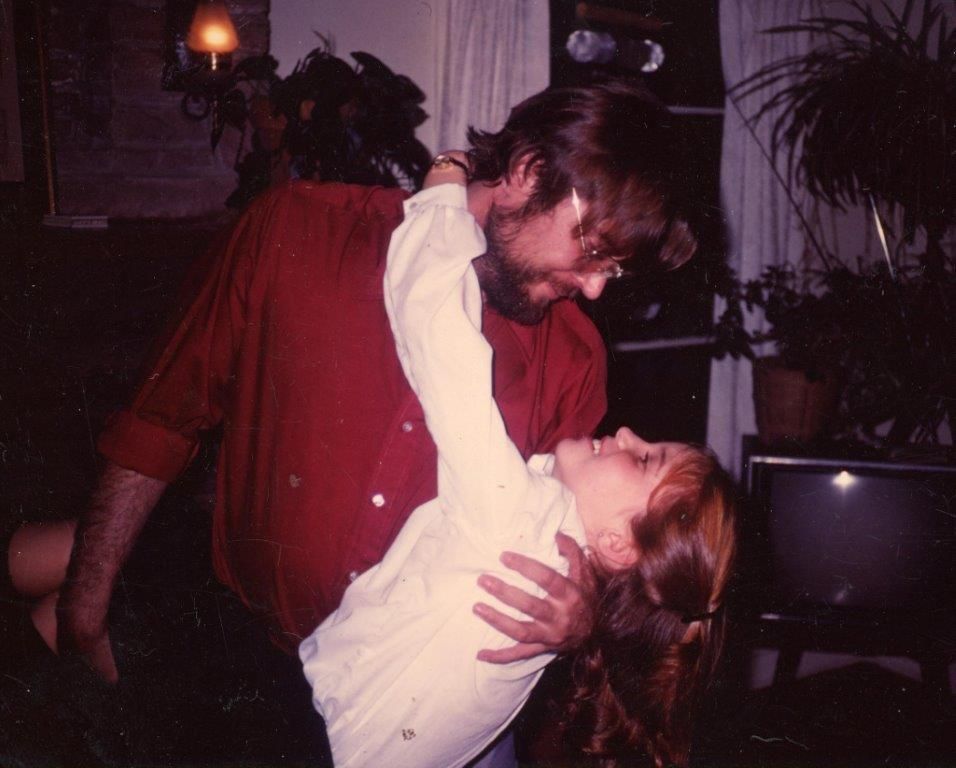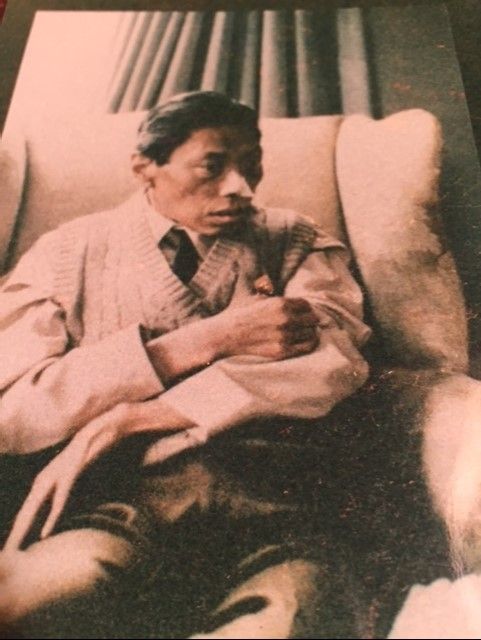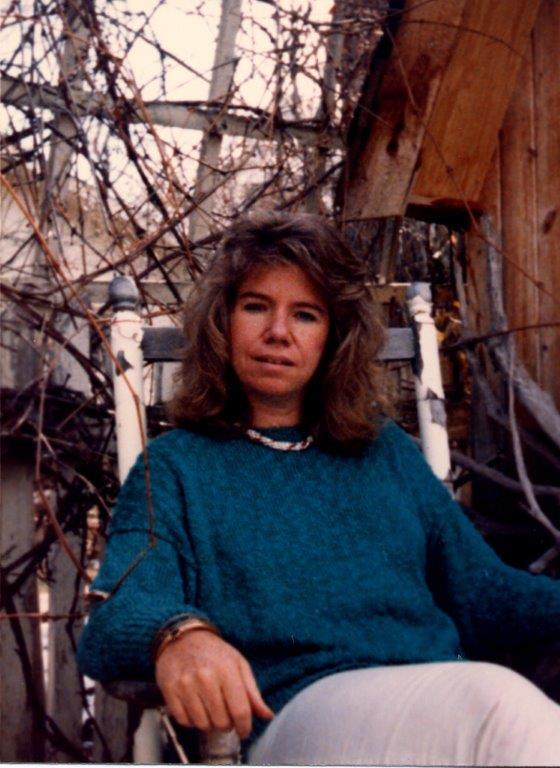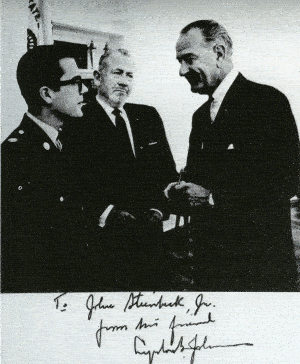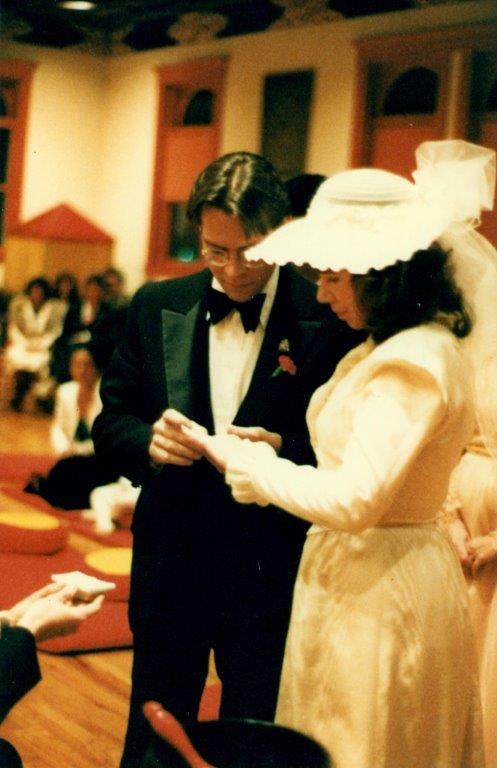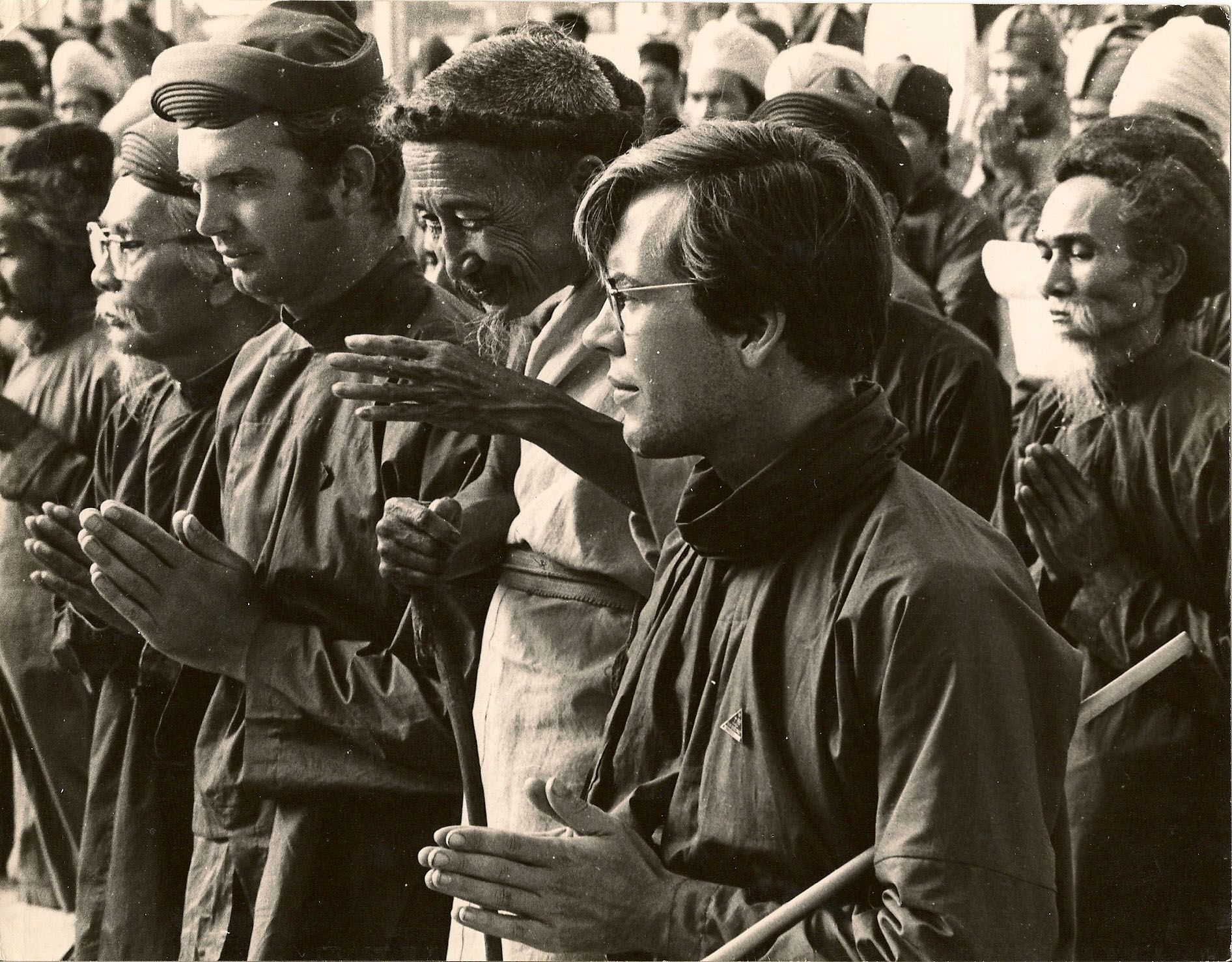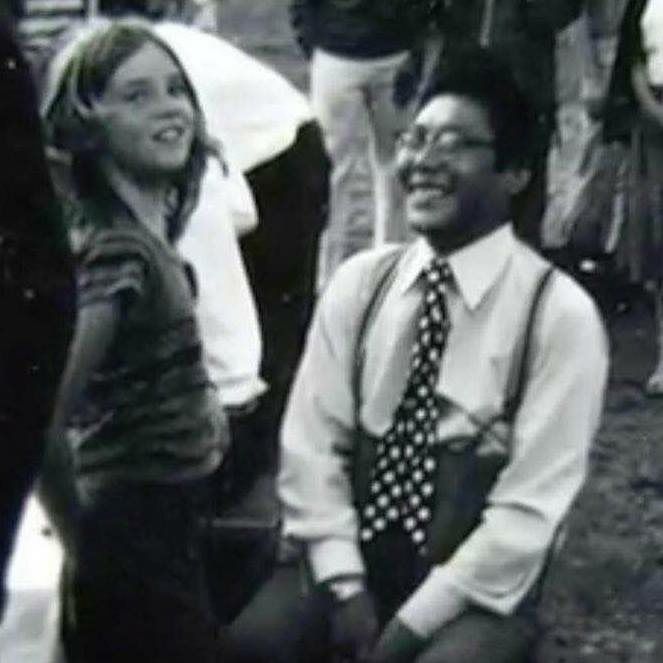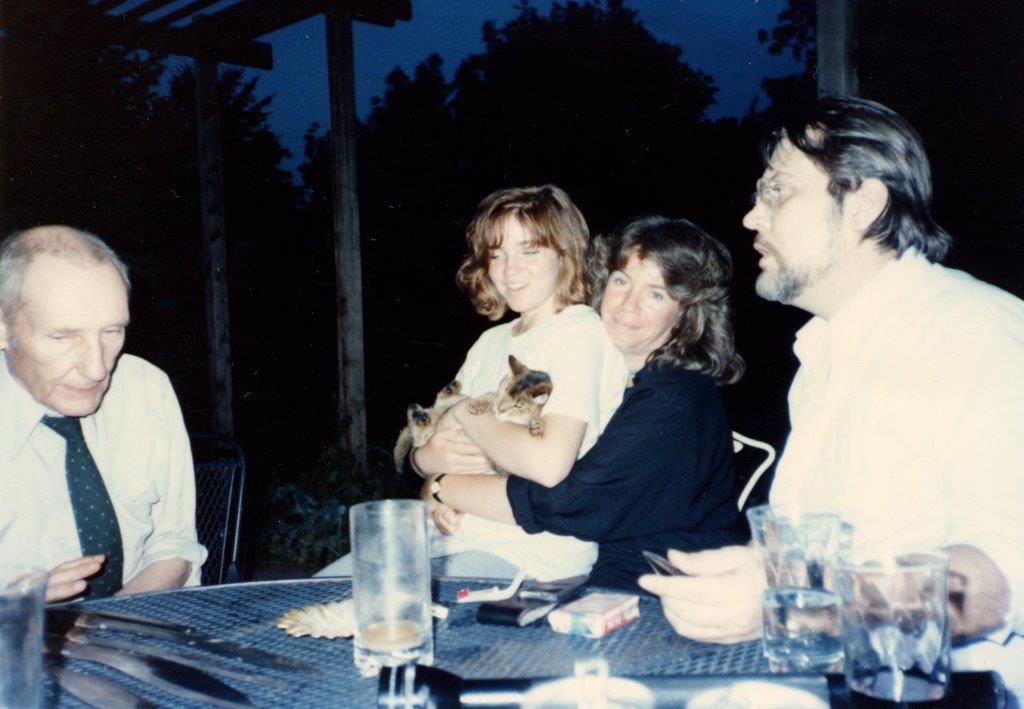John Steinbeck IV
Journalist, Writer
John Steinbeck IV was born on June 12, 1945, in New York City. Although he was the younger of Steinbeck’s two sons, he was his namesake.
learn more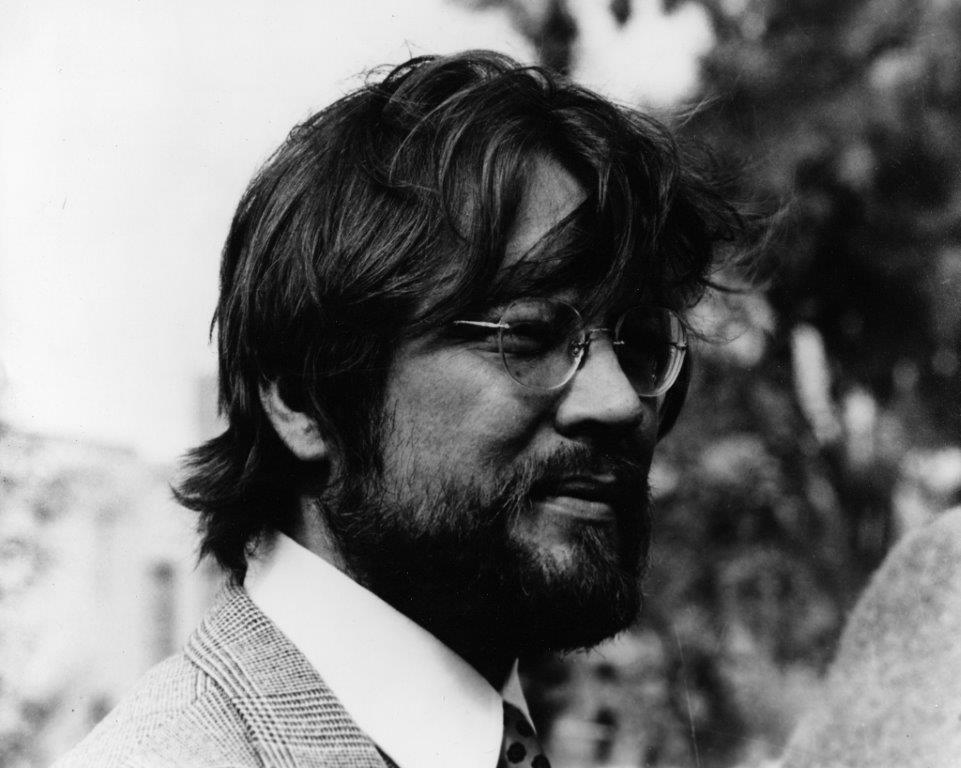
0+
BOOKS HAVE BEEN SOLD
Early Life of John Steinbeck IV
Military Service and Early Journalism
In 1965, John was drafted into the Vietnam war where he served as a communications specialist for Armed Forces Radio and TV. Upon his return to the United States, prior to his discharge, he was asked by the Washingtonian to write an article which he titled The Importance of Being Stoned in Vietnam. He was called to testify in front of a Senate Subcommittee on drug abuse by American troops. Despite General William Westmoreland’s statement that “Private John Steinbeck’s comments on the use of marijuana in Vietnam were baseless”, John received an honorary discharge.
As a journalist
Return to Vietnam and Investigative Reporting
In 1968, John returned to Vietnam as a journalist. Along with Sean Flynn, son of actor Errol Flynn, he started Dispatch News Service. Fluent in street Vietnamese, they quickly became independent of the flow of information dispensed by the United States Press Office. Hence, they were the first to disclose the truth about the My Lai massacre and the Con Son Tiger cages. While Sean was in Cambodia on a photo shoot, he was taken as a POW and never seen again. John’s Vietnam memoir In Touch was published by Knopf in 1969. He wrote about his experiences with the Vietnamese, the GI’s and his romantic interlude with that exotic culture. John took the vows of a Buddhist monk while living on Phoenix Island in the middle of the Mekong delta, under the tutelage of the politically powerful Coconut Monk, a silent tree-dwelling Buddhist yogi.
In 1975, John and Nancy met in Boulder, Colorado, while studying Tibetan Buddhism with the notorious renegade lama, Chogyam Trungpa Rinpoche. In their memoir, they write about the process of making a moral decision to leave the cult of Shambhala, after spending 15 years in the organization. The Other Side of Eden is now recognized as a pioneering effort to awaken cult-members with the truth about the debauchery, pedophilia and criminal activity that has run rampant in Trungpa’s organization for the past 50 years.
John’s quest for sobriety runs counterpoint through their experiences with Trungpa’s deadly alcoholism and cocaine abuse. At the time of his death from back surgery in 1991, John had enjoyed three victorious years of sobriety. Nancy finished the memoir he started in 1990, combining the story of their life together with John’s autobiographical chapters.
In 1975, John and Nancy met in Boulder, Colorado, while studying Tibetan Buddhism with the notorious renegade lama, Chogyam Trungpa Rinpoche. In their memoir, they write about the process of making a moral decision to leave the cult of Shambhala, after spending 15 years in the organization. The Other Side of Eden is now recognized as a pioneering effort to awaken cult-members with the truth about the debauchery, pedophilia and criminal activity that has run rampant in Trungpa’s organization for the past 50 years.
John’s quest for sobriety runs counterpoint through their experiences with Trungpa’s deadly alcoholism and cocaine abuse. At the time of his death from back surgery in 1991, John had enjoyed three victorious years of sobriety. Nancy finished the memoir he started in 1990, combining the story of their life together with John’s autobiographical chapters.
Learn More About Their Memoir
Read The Other Side of Eden and explore a powerful journey of truth, love, and spiritual awakening.
Nancy Steinbeck’s Life and Career
Nancy Steinbeck
Nancy Steinbeck was a musical child prodigy, but decided to pursue a career in writing and social work. A graduate of San Francisco’s prestigious Lowell High School, she received her BA from the University of California at Berkeley during the Free Speech Movement. She shares a unique history with a small group of San Francisco teenagers as being one of the original Haight-Ashbury hippies. Nancy spent a decade traveling around the world and living abroad, in Kathmandu, on a commune in British Columbia and in a remote mountain village in Mexico. She has worked as a counselor with hard core delinquents at the San Francisco Juvenile Hall and drug addicts at Scripps McDonald Center in La Jolla, California. She and John spent twelve years engaged in the study and practice of Tibetan Buddhism with Chogyam Trungpa Rinpoche in Boulder, Colorado. Upon John’s untimely death, Nancy moved to a remote area of the Ozark Mountains, where she works as a consultant for anti-cult groups that expose illegal activity.
FROM THE BOOK JACKET
The Other Side of Eden
As the son of a celebrated literary icon, John Steinbeck IV grew up in a privileged world peopled by the literati and the intellectual elite. Sadly, it was also a world of alcoholism, bitter divorce, estrangement, and abuse, on the part of both his mother and father. In this fascinating memoir, the late son and namesake of John Steinbeck writes with great insight and a gift for lyrical expression about his often painful youth.
Left unfinished at his untimely death, this testament to his life is here reconstructed by his former wife, Nancy Steinbeck. Interweaving her own reminiscences of her life with John Steinbeck IV, Nancy has created an engrossing account from two perspectives: John’s memories of his chaotic and adventurous upbringing and her own thoughts on their journey together to make a new life apart from the long shadow of a famous father and a troubled past.
Though laboring under the burden of being the son of a 20th-century legend, the younger Steinbeck established himself as a respected journalist in his own right, mainly through his writing on wartime Vietnam, which had a profound impact on his life. The Other Side of Eden contains many thoughts on Vietnam, including a memorable scene of his father’s visit to the war-torn country while the younger Steinbeck was in the army. There are also vivid recollections of his mother’s abusive, alcoholic rages; his lonely years in boarding school; his long battle with drug addiction; and his strained relationship with his remote, conflicted father.
Left unfinished at his untimely death, this testament to his life is here reconstructed by his former wife, Nancy Steinbeck. Interweaving her own reminiscences of her life with John Steinbeck IV, Nancy has created an engrossing account from two perspectives: John’s memories of his chaotic and adventurous upbringing and her own thoughts on their journey together to make a new life apart from the long shadow of a famous father and a troubled past.
Though laboring under the burden of being the son of a 20th-century legend, the younger Steinbeck established himself as a respected journalist in his own right, mainly through his writing on wartime Vietnam, which had a profound impact on his life. The Other Side of Eden contains many thoughts on Vietnam, including a memorable scene of his father’s visit to the war-torn country while the younger Steinbeck was in the army. There are also vivid recollections of his mother’s abusive, alcoholic rages; his lonely years in boarding school; his long battle with drug addiction; and his strained relationship with his remote, conflicted father.
Cult Exposé and Cultural Critique
Nancy’s Perspective and Spiritual Journey
Nancy Steinbeck adds important perspective as an outsider getting to know this complex family through John, and in the end helping him to put his life on a sound footing. Both Nancy and John, in their search for spiritual identity, were drawn to Tibetan Buddhism. Along the way they befriended a strange and fascinating collection of characters, from the Dalai Lama to William Burroughs and Abbie Hoffman. Their tale of triumph in the struggle against parental abuse, drug addiction, and the seductive trap of guru worship is a must read for all Steinbeck fans, as well as anyone who survived the sixties.
Although The Other Side of Eden appears to focus on the Steinbeck family, it also contains a raw exposé of the Shambhala International cult in its early years, before it turned into a corporate sham by greedy students and their puppet leader.
Oxford scholar, Andrew Harvey, wrote in the Foreword: “A light of rare, bald awareness bathes the Steinbecks’ exposé of their disillusion with Tibetan Buddhism and its guru system. Searching for a spiritual truth that could spring them free of their inherited agonies and also for a “good parent”, they both became in the seventies, like so many other seekers, enamored of the “Crazy Wisdom” teacher, Trungpa Rinpoche. Initially intoxicated by Trungpa’s extravagance and brilliance, the Steinbecks came gradually to see how abusively, absurdly and dangerously grandiose he could be. They began to understand how sick with denial of his alcoholism and sexual cruelty the community that surrounded him was. This shocked them both into awakening from “the guru dream” and forced them to distance themselves from the savage, intricate cruelties of Tibetan Buddhism’s rotten, patriarchal, feudal system.”
Although The Other Side of Eden appears to focus on the Steinbeck family, it also contains a raw exposé of the Shambhala International cult in its early years, before it turned into a corporate sham by greedy students and their puppet leader.
Oxford scholar, Andrew Harvey, wrote in the Foreword: “A light of rare, bald awareness bathes the Steinbecks’ exposé of their disillusion with Tibetan Buddhism and its guru system. Searching for a spiritual truth that could spring them free of their inherited agonies and also for a “good parent”, they both became in the seventies, like so many other seekers, enamored of the “Crazy Wisdom” teacher, Trungpa Rinpoche. Initially intoxicated by Trungpa’s extravagance and brilliance, the Steinbecks came gradually to see how abusively, absurdly and dangerously grandiose he could be. They began to understand how sick with denial of his alcoholism and sexual cruelty the community that surrounded him was. This shocked them both into awakening from “the guru dream” and forced them to distance themselves from the savage, intricate cruelties of Tibetan Buddhism’s rotten, patriarchal, feudal system.”
Read Their Legacy
Experience history, journalism, and healing through the eyes of two courageous voices.
gallery
Our Gallery
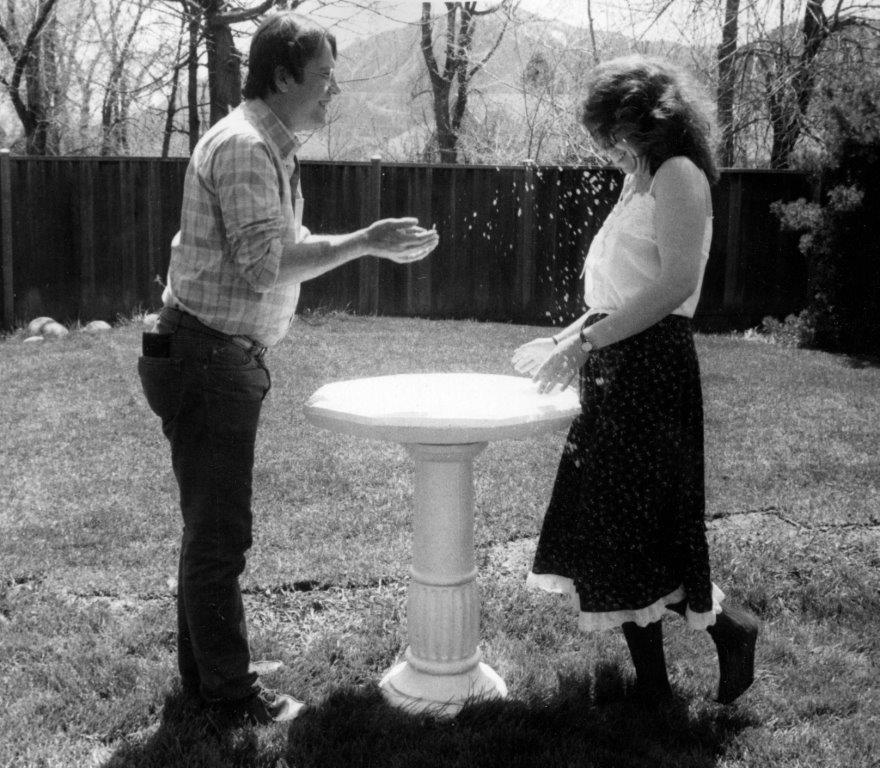
get in touch
Contact Us
If you would like more information on any of the material contained in this website, please contact Nancy Steinbeck by using the form below.
